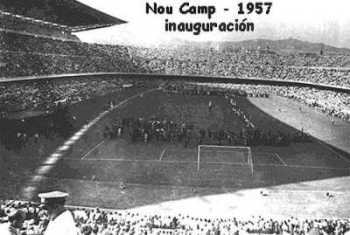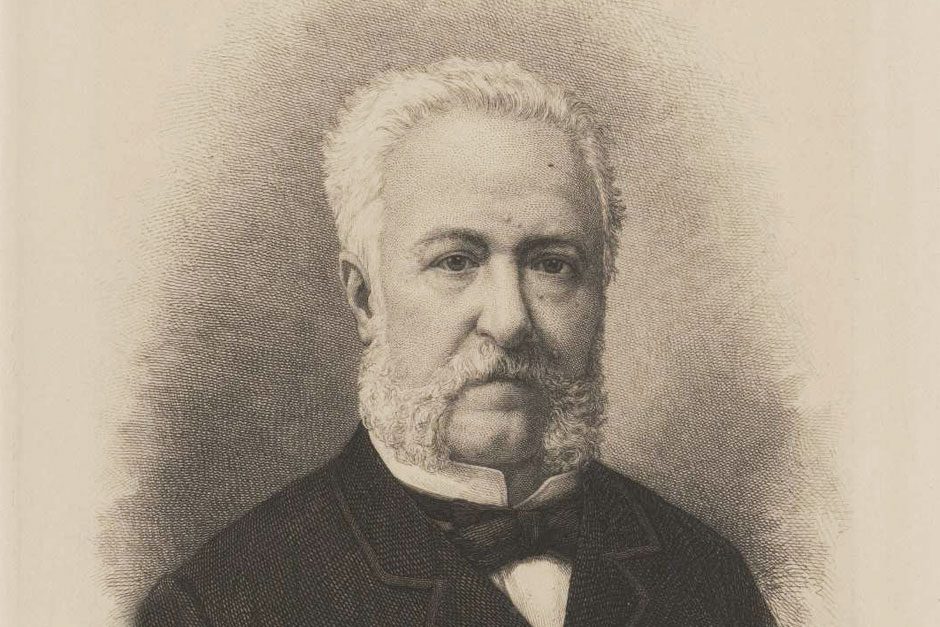September 24
Saint’s Day for Félix, Pafnucio, Gerardo. Also for Nuestra Señora de la Merced, the patron saint of prisons.
1230 - Kingdoms of Castile and Leon meet.
1493 - Christopher Columbus begins his second expedition to the New World.
1493 - Christopher Columbus begins his second expedition to the New World.
1568 - Spanish naval forces defeat an English fleet, under the command of John Hawkins at the Battle of San Juan de Ulúa near Veracruz
1810 - In the Iglesia Mayor de San Pedro y San Pablo (en San Fernando, Cádiz) the Cortes of Cádiz were sworn in.
1810 - in the city of Santa Cruz de la Sierra (Bolivia) Grito Libertario is performed against the Spanish Empire.
1812 - The Battle of Tucumán, where forces loyal to the Spanish Crown were defeated by Argentinean forces led by General Manuel Belgrano, during Argentina’s War of Independence.
1810 - In the Iglesia Mayor de San Pedro y San Pablo (en San Fernando, Cádiz) the Cortes of Cádiz were sworn in.
1810 - in the city of Santa Cruz de la Sierra (Bolivia) Grito Libertario is performed against the Spanish Empire.
1812 - The Battle of Tucumán, where forces loyal to the Spanish Crown were defeated by Argentinean forces led by General Manuel Belgrano, during Argentina’s War of Independence.

1957 - Camp Nou (New Field in the Catalan language), home to Barcelona Football Club, opened as the Estadi del FC Barcelona. The name was officially changed to its nickname of Camp Nou in 2000.
1984 - The Barcelona Football Club Museum opens.
2011 - A Spanish oil tanker hijacked off the coast of West Africa is freed, with no harm reportedly done to the crew, and no ransom paid to the pirates.
1984 - The Barcelona Football Club Museum opens.
2011 - A Spanish oil tanker hijacked off the coast of West Africa is freed, with no harm reportedly done to the crew, and no ransom paid to the pirates.
2019 - Spain's Supreme Court rules body of dictator Francisco Franco can be removed from state mausoleum, the Valley of the Fallen, to a municipal cemetery
Births

Ramón de Campoamor y Campoosorio - https://dbe.rah.es/
1817 - Ramón de Campoamor y Campoosorio, born in Navas (Asturias). Abandoning his first intention of entering the Jesuit order, he studied medicine at Madrid, found an opening in politics as a supporter of the Moderate party, and, after occupying several subordinate posts, became governor of Castellón de la Plana, of Alicante and of Valencia. Campoamor identified with the moderate liberalism of his day, repudiating both revolution and reaction equally
His first appearance as a poet dated from 1840, when the Madrid Lyceum of Art and Literature published his Ternezas y flores a collection of idyllic verses, remarkable for their technical excellence. His Ayes del Alma (1842) and his Fábulas morales y políticas (1842) sustained his reputation, but showed no perceptible increase of power or skill. An epic poem in sixteen cantos, Colón (1853), is no more successful than modern epics usually are.
Campoamor's theatrical pieces, such as El Palacio de la Verdad (1871), Dies Irae (1873), El Honor (1874) and Glorias Humanas (1885) are interesting experiments, but they are totally lacking in dramatic spirit. He always showed a keen interest in metaphysical and philosophic questions, and defined his position in La Filosofía de las leyes (1846), El personalism, apuntes para una filosofía (1855) La metafisica limpia, fija y da esplendor al lenguaje (1862) Lo Absoluto (1865) and El Ideismo (1883) These studies are chiefly valuable as embodying fragments of self-revelation, and as having led to the composition of those doloras, humoradas and pequeños poemas, which the poet's admirers consider as a new poetic species. The first collection of Doloras was printed in 1846, and from that date onwards new specimens were added to each succeeding edition. It is difficult to define a dolora. One critic has described it as didactic, symbolic stanza which combines the lightness and grace of the epigram, the melancholy of the endecha, the concise narrative of the ballad, and the philosophic intention of the apologue
(d. 1901)
1852 - Mercedes de Velilla, poet.
1894 - Francisco López de Goicoechea, politician (d. 1973)
1905 - Severo Ochoa, the Spanish-born Biochemist who, with his American colleague, Arthur Kornberg, was awarded the Nobel Prize in Medicine in 1959, born in Luarca, Asturias (d. 1993)
1907 - Martín Marculeta, footballer (d. 1984)
1926 - Ricardo María Carles Gordó, archbishop and cardinal.
1927 - Alfredo Kraus, tenor (d. 1999)
1948 - Jaume Sisa, musician.
1949 - Pedro Almodóvar, film maker and director.
1958 - Elena Ochoa, a psychologist and presenter of Spanish television.
1959 - Ana Mato, politician.
1964 - Alberto Albístegui, footballer.
1964 - Ainhoa Arteta, soprano.
1969 - Goya Toledo, model and actress. (Amores Perros) born in Arrecife
1975 - Sergio Muniz, actor.
1976 - Pedro Andreu, writer.
1984 - Ismael González Núñez, athlete (d. 2010)
1991 - Oriol Romeu, footballer.
Deaths
1852 - Mercedes de Velilla, poet.
1894 - Francisco López de Goicoechea, politician (d. 1973)
1905 - Severo Ochoa, the Spanish-born Biochemist who, with his American colleague, Arthur Kornberg, was awarded the Nobel Prize in Medicine in 1959, born in Luarca, Asturias (d. 1993)
1907 - Martín Marculeta, footballer (d. 1984)
1926 - Ricardo María Carles Gordó, archbishop and cardinal.
1927 - Alfredo Kraus, tenor (d. 1999)
1948 - Jaume Sisa, musician.
1949 - Pedro Almodóvar, film maker and director.
1958 - Elena Ochoa, a psychologist and presenter of Spanish television.
1959 - Ana Mato, politician.
1964 - Alberto Albístegui, footballer.
1964 - Ainhoa Arteta, soprano.
1969 - Goya Toledo, model and actress. (Amores Perros) born in Arrecife
1975 - Sergio Muniz, actor.
1976 - Pedro Andreu, writer.
1984 - Ismael González Núñez, athlete (d. 2010)
1991 - Oriol Romeu, footballer.
Deaths

1230 - Alfonso IX, was King of León and Galicia from the death of his father Ferdinand II in 1188 until his own death
He took steps towards modernising and democratising his dominion and founded the University of Salamanca in 1212. In 1188 he summoned the first parliament reflecting the fullest representation of the citizenry ever seen in Western Europe, the Cortes de León
He took part in the work of the Reconquest, conquering the area of Extremadura (including the cities of Cáceres and Badajoz)
1820 - Pedro Aranaz, composer.
1852 - Francisco Javier Castaños, 1st Duke of Bailén
1953 - Jacobo Fitz-James Stuart. XVII Duke of Alba.
1976 - Miguel Ángel García-Lomas, politician and architect (b. 1913)
2007 - Odon Betanzos, journalist, poet, novelist and critic (b. 1925)
2010 - Ana Kiro, singer (b. 1942)
1820 - Pedro Aranaz, composer.
1852 - Francisco Javier Castaños, 1st Duke of Bailén
1953 - Jacobo Fitz-James Stuart. XVII Duke of Alba.
1976 - Miguel Ángel García-Lomas, politician and architect (b. 1913)
2007 - Odon Betanzos, journalist, poet, novelist and critic (b. 1925)
2010 - Ana Kiro, singer (b. 1942)
